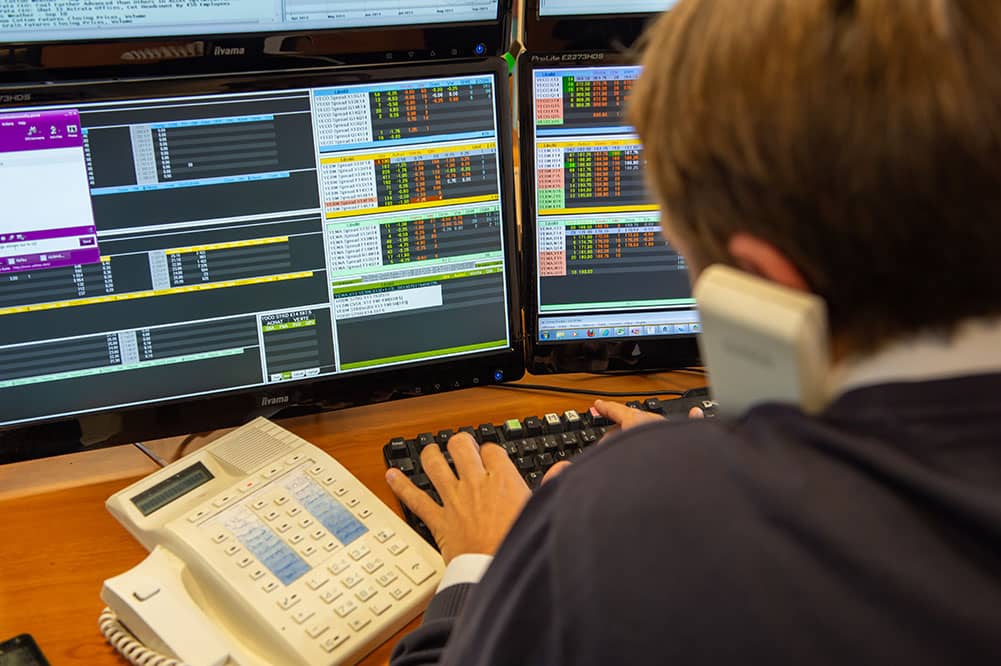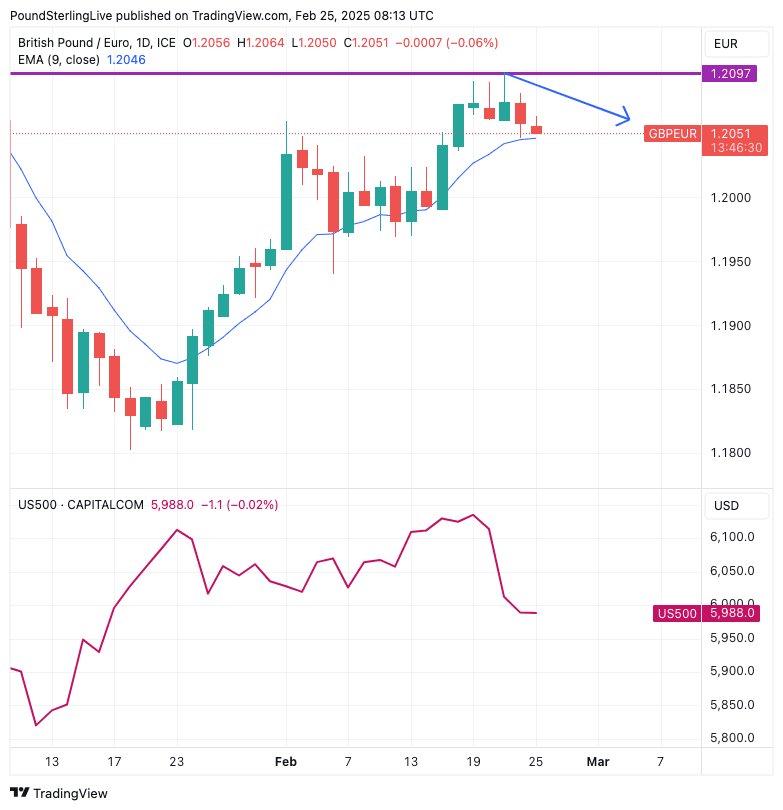
Image © Adobe Images
The British Pound could be set for a shallow setback against the Euro amidst a global stock market decline and hopes for a German economic revival.
The Pound-to-Euro exchange rate (GBPEUR) rallied to its highest level of 2025 at 1.2097 on Friday but has since retreated and could be set for further weakness as global stock markets come under pressure.
The GBPEUR has a positive correlation with global sentiment, meaning it is tracking this week's decline in stock markets:
Above: GBPEUR tends to be positively correlated to global equity sentiment, as measured by the S&P 500.
"Equity markets remain under pressure on Tuesday following a roller-coaster session on Wall Street yesterday that saw Friday’s selloff deepen. An attempt to pare last week’s losses was torpedoed by President Trump as his administration announced new restrictions on Chinese investments into the U.S. in strategic sectors such as technology, energy and critical infrastructure," says Raffi Boyadjian, Lead Market Analyst at Trading Point.
Analysts also say the latest setback for sentiment and equities comes after Trump confirmed the U.S. is still on course to enact tariffs on Canada and Mexico next month, renewing a sense of uncertainty and caution.
He told the press that these tariffs - set for March 03 - were "on time" and "moving along very rapidly".
A suite of global tariffs on metals, cars, pharmaceuticals and chips will be enforced on April 02.
"We'd not be surprised to see Trump raise the tariff threat until the last minute to gain negotiating leverage, like in February," says Francesco Pesole, FX Strategist at ING Bank.
"We expect geopolitically induced market volatility to continue, with Trump’s trade policies and their economic impact also driving potential market swings," says Mark Haefele, a strategist at UBS Global Wealth Management.
UBS warns aggressive U.S. tariffs would likely trigger retaliation by U.S. trading partners, adding to trade uncertainty, inflation pressures, and market volatility.
A major risk to Pound Sterling's multi-month uptrend against the Euro remains a more protracted and pronounced setback to global stock markets.
German Elections Outcome Boosts Euro
Euro exchange rates started the new week on the front foot in hopes the new German government would boost the fortunes of Europe's largest economy.
Freidrich Merz hopes his CDU/CSU coalition will soon agree on a new government with the SDP. Investors hope the agreement will allow the new Chancellor to enact as much of his "Agenda 2030" plan, which aims to revitalise the nation's economy.
Key components include a corporate tax reduction from 40% to 25% to enhance business competitiveness and personal income tax cuts for low and middle-income households. The plan also involves improving labour market flexibility, cutting red tape and expediting planning approvals.
"The performance of the German economy is relevant for EUR exchange rates not only because it affects the overall growth of the euro area and thus possibly the ECB's monetary policy," says Ulrich Leuchtmann, Head of FX and Commodity Research at Commerzbank.
However, the election result was largely expected by market participants, meaning there was little risk premium to unwind and this will limit the Euro's upside in the coming days.
Instead, the relevance of the election will play out over a longer term time period as pro-growth structural changes are implemented.
"Germany's cyclical position is more relevant to the FX market's assessment of the cyclical position of the euro area than statistical nitpicking could capture," says Leuchtmann.

